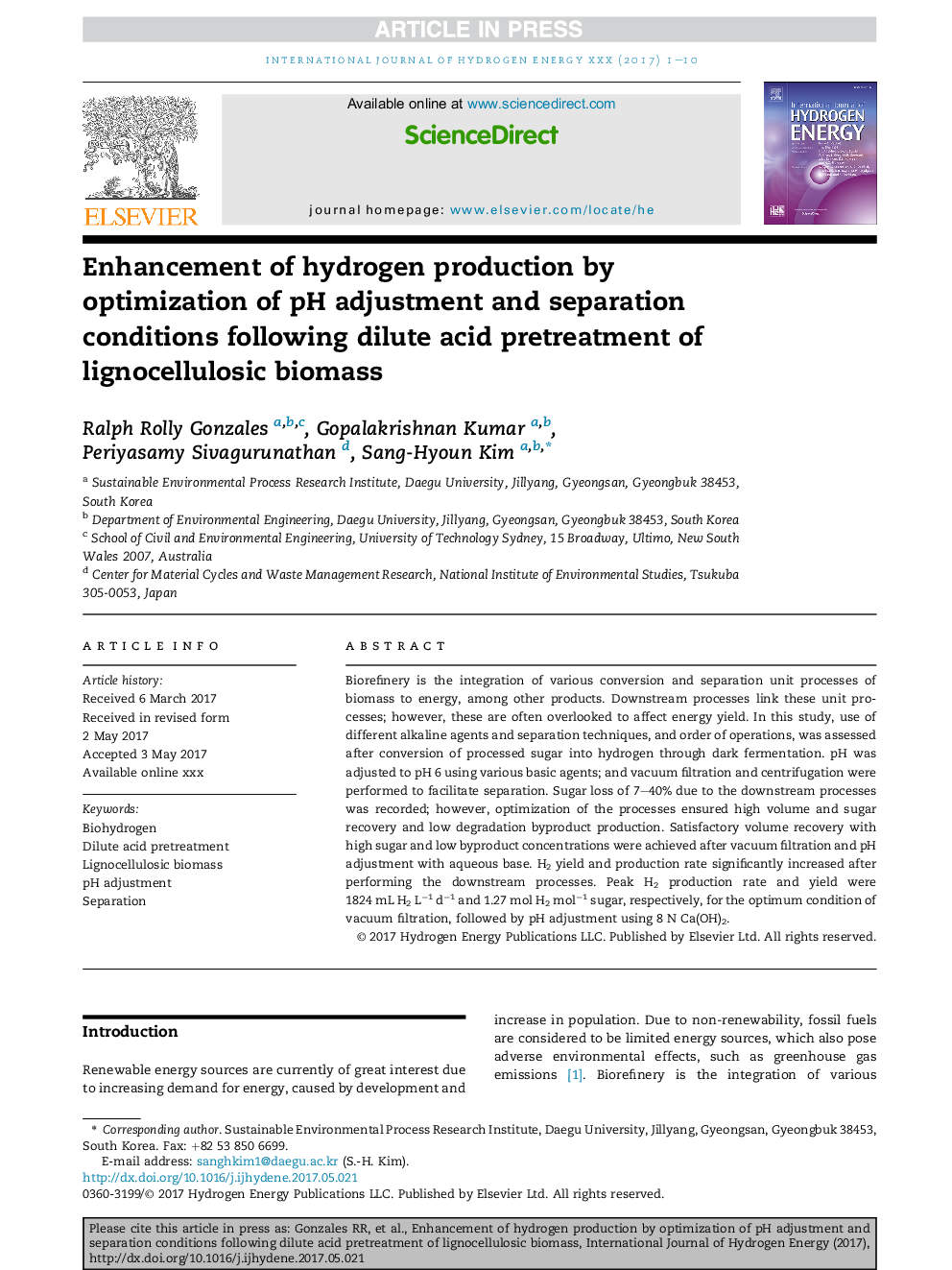| Article ID | Journal | Published Year | Pages | File Type |
|---|---|---|---|---|
| 7709492 | International Journal of Hydrogen Energy | 2017 | 10 Pages |
Abstract
Biorefinery is the integration of various conversion and separation unit processes of biomass to energy, among other products. Downstream processes link these unit processes; however, these are often overlooked to affect energy yield. In this study, use of different alkaline agents and separation techniques, and order of operations, was assessed after conversion of processed sugar into hydrogen through dark fermentation. pH was adjusted to pH 6 using various basic agents; and vacuum filtration and centrifugation were performed to facilitate separation. Sugar loss of 7-40% due to the downstream processes was recorded; however, optimization of the processes ensured high volume and sugar recovery and low degradation byproduct production. Satisfactory volume recovery with high sugar and low byproduct concentrations were achieved after vacuum filtration and pH adjustment with aqueous base. H2 yield and production rate significantly increased after performing the downstream processes. Peak H2 production rate and yield were 1824 mL H2 Lâ1 dâ1 and 1.27 mol H2 molâ1 sugar, respectively, for the optimum condition of vacuum filtration, followed by pH adjustment using 8 N Ca(OH)2.
Related Topics
Physical Sciences and Engineering
Chemistry
Electrochemistry
Authors
Ralph Rolly Gonzales, Gopalakrishnan Kumar, Periyasamy Sivagurunathan, Sang-Hyoun Kim,
